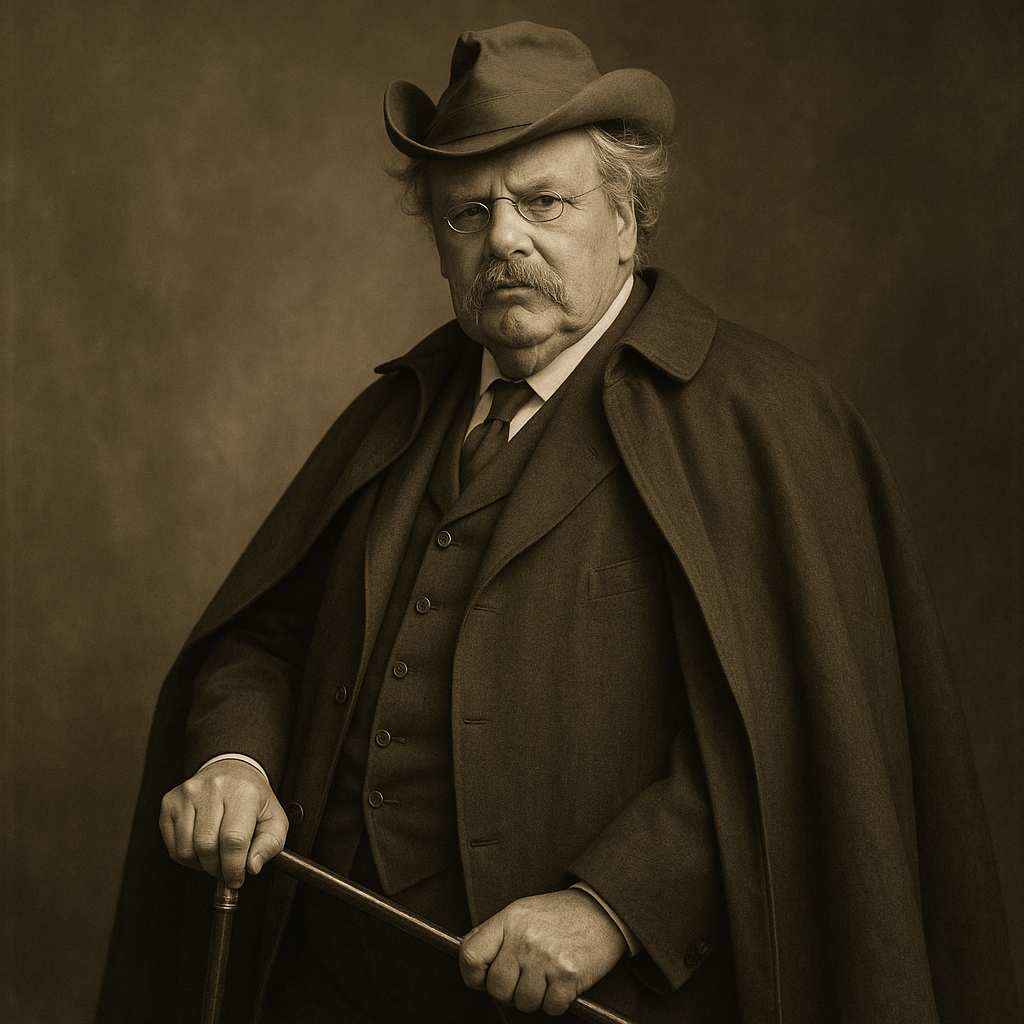The Dead Hero
G. K. Chesterton
1874 to 1936

We never saw you, like our sires,
For whom your face was Freedom's face,
Nor know what office-tapes and wires
With such strong cords may interlace;
We know not if the statesmen then
Were fashioned as the sort we see,
We know that not under your ken
Did England laugh at Liberty.
Yea, this one thing is known of you,
We know that not till you were dumb,
Not till your course was thundered through,
Did Mammon see his kingdom come.
The songs of theft, the swords of hire,
The clerks that raved, the troops that ran
The empire of the world's desire,
The dance of all the dirt began.
The happy jewelled alien men
Worked then but as a little leaven;
From some more modest palace then
The Soul of Dives stank to Heaven.
But when they planned with lisp and leer
Their careful war upon the weak,
They smote your body on its bier,
For surety that you could not speak.
A hero in the desert died;
Men cried that saints should bury him.
And round the grave should guard and ride,
A chivalry of Cherubim.
God said: "There is a better place,
A nobler trophy and more tall;
The beasts that fled before his face
Shall come to make his funeral.
"The mighty vermin of the void
That hid them from his bended bow,
Shall crawl from caverns overjoyed,
Jackal and snake and carrion crow.
And perched above the vulture's eggs,
Reversed upon its hideous head,
A blue-faced ape shall wave its legs
To tell the world that he is dead."
G. K. Chesterton's The Dead Hero
I am busy working to bring G. K. Chesterton's "The Dead Hero" to life through some unique musical arrangements and will have a full analysis of the poem here for you later.
In the meantime, I invite you to explore the poem's themes, structure, and meaning. You can also check out the home page for other musical arrangements or learn more about G. K. Chesterton's life and contributions to literature.
Check back soon to experience how "The Dead Hero" transforms when verse meets melody—a unique journey that makes poetry accessible, engaging, and profoundly moving in new ways.
Want to join the discussion? Reopen or create a unique username to comment. No personal details required!



Comments
No comments yet. Be the first to comment!